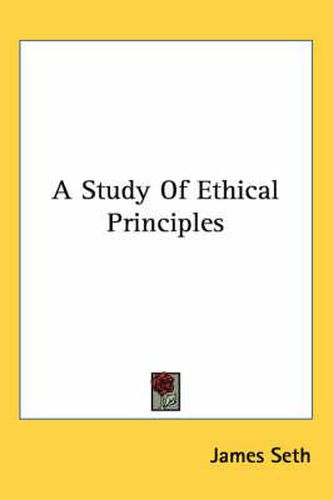Readings Newsletter
Become a Readings Member to make your shopping experience even easier.
Sign in or sign up for free!
You’re not far away from qualifying for FREE standard shipping within Australia
You’ve qualified for FREE standard shipping within Australia
The cart is loading…






Purchase of this book includes free trial access to www.million-books.com where you can read more than a million books for free. This is an OCR edition with typos. Excerpt from book: police function, and the Hobbes-Rousseau theory of society itself as a secondary product, the result of contract between individuals who, like mutually exclusive atoms, are naturally antagonists. For, in reality, these two spheres of life are inseparable. The interests and claims of the social and of the individual life overlap, and are reciprocally inclusive. These are not two lives, but two sides or aspects of one
X
I undivided life. You cannot isolate the moral individual; to do so would be to de-moralise him, to annihilate his moral nature. His very life as a moral being consists in a network of relations which link his individual life with the wider life of his fellowa It is literally true that no man liveth to himself?there is no retiring into the privacy and solitude of a merely individual life. Man is a social or political being.. On the other hand, the individual is more than a member of society; he is not the mere organ of the body politic. He too is an organism, and has a life and ends of his own. The good is, for every individual, a social or common good, a good in which he cannot claim such private property as to exclude his fellows; their good is his, and his theirs. Yet the good?the only good we know as absolute?is always a personal, not an impersonal, good, a good of moral persons. The person, not society, is the ultimate ethical unit and reality. 7. Aspects of the ethical problem.?The ethical problem has assumed various aspects, according to the various points of view from which it has been approached. It may be well to indicate here the chief of these aspects, and their relation to one another. (a) The first is also, as I have tried to show, the most fundamental?viz.: What is the good or the moral ideal ? or, as it was frequently put in ancient ethic…
$9.00 standard shipping within Australia
FREE standard shipping within Australia for orders over $100.00
Express & International shipping calculated at checkout
Purchase of this book includes free trial access to www.million-books.com where you can read more than a million books for free. This is an OCR edition with typos. Excerpt from book: police function, and the Hobbes-Rousseau theory of society itself as a secondary product, the result of contract between individuals who, like mutually exclusive atoms, are naturally antagonists. For, in reality, these two spheres of life are inseparable. The interests and claims of the social and of the individual life overlap, and are reciprocally inclusive. These are not two lives, but two sides or aspects of one
X
I undivided life. You cannot isolate the moral individual; to do so would be to de-moralise him, to annihilate his moral nature. His very life as a moral being consists in a network of relations which link his individual life with the wider life of his fellowa It is literally true that no man liveth to himself?there is no retiring into the privacy and solitude of a merely individual life. Man is a social or political being.. On the other hand, the individual is more than a member of society; he is not the mere organ of the body politic. He too is an organism, and has a life and ends of his own. The good is, for every individual, a social or common good, a good in which he cannot claim such private property as to exclude his fellows; their good is his, and his theirs. Yet the good?the only good we know as absolute?is always a personal, not an impersonal, good, a good of moral persons. The person, not society, is the ultimate ethical unit and reality. 7. Aspects of the ethical problem.?The ethical problem has assumed various aspects, according to the various points of view from which it has been approached. It may be well to indicate here the chief of these aspects, and their relation to one another. (a) The first is also, as I have tried to show, the most fundamental?viz.: What is the good or the moral ideal ? or, as it was frequently put in ancient ethic…